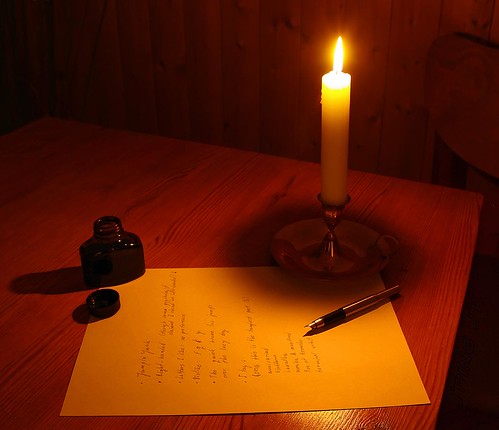
In "Games and Literacy" (LJ 6/15/09), I wrote about the potential of games to develop literacy skills; in "Games and Literature" (LJ 8/09), I discussed narrative and storytelling in games. The circle now closes with this column, in which I suggest harnessing garners' creative drives to help them develop their writing skills.
Contrary to the widely held notion that garners are unimaginative mouse potatoes, many write, draw, paint, create machinima--graphics-generated computer animation--and compose music related to their favorite games (e.g., CraniusPresents' machinima and music composition "Darrowshire," bit.ly/darrowshire).
Programming
Libraries encourage acquisition of knowledge and insight through reading, but we also excite patrons to new undertakings through our programs and activities. As Eli Neiburger, Ann Arbor District Library, MI, noted in "Talking with Eli Neiburger" (LJ 9/15/09), gaming programs must involve more than putting out a pile of games for patrons to "plug and play." Enhancing garners' experiences by urging them to work on their creative writing skills offers many rewards.
Model initiatives
Certainly, not every library can re-create initiatives like ImaginOn (www.imaginon. org), a collaboration between the Public Library of Charlotte and Mecklenburg County, NC, and the Children's Theatre of Charlotte. But anyone can adopt its mission "to bring stories to life."
Similarly, nearby Wayne County Public Library, Goldsboro, NC, is developing a yearlong "Play Me a Story" campaign whose mission is to encourage users to strengthen their creative thinking skills through gaming.
Games are storytelling in a new medium, and much richness can derive from works rooted in such fertile ground.
Fanfiction
Writing fanfiction is a good way to learn to write creatively. For librarians uninitiated in the practice of fanfiction, School Library Journal's "When Harry Met Bella" (SLJ 8/09) is an excellent primer. In it, the authors posit that "using existing characters allows fanfiction creators to concentrate on other areas of writing, such as pacing, style, and plot." Adapt their ideas for fanfiction programming to engage gamers of all ages at your library.
Are any of your users avid Rock Band fans? Challenge them to write about what that punk girl does when she's not knocking out a drum solo. Did some youngster just race in to play Mario Kart Wii? How about a scene with Toad and Peach in the doctor's office after a particularly nasty smashup?
Mix up the games for crossover stories: e.g., how might Marcus Fenix (of Gears of War) partner with Sam Fisher (of Tom Clancy's Splinter Cell) through the machinations of Abstergo Industries (of Assassin's Creed)?
Chances are you won't have to give them ideas; they will have their own. Chances are they already have an avatar living in some fictional world like the anime-themed social networking and forums-based site Gaia Online (www. gaiaonline.com). Challenge your patrons to write that character's backstory, share it in your program, find a beta reader, hone their skills.
Start next month
You have a perfect opportunity to start this conversation with gainers as early as next month by encouraging them to participate in National Novel Writing Month, or NaNoWriMo (www.nanowrimo.org), through which anyone can partake in a self-imposed worldwide challenge to write a 175-page novel (50,000 words) in just 30 days.
Not for the faint of heart and not necessarily ideal for someone new to writing, NaNoWriMo is nonetheless a good place to, at the very least, open a discussion about writing with your gaming group.
As Clive Thompson wrote in an August 24 Wired magazine article, the proliferation of such forms of popular media and expression as "15,000-word videogame walkthroughs" has given today's users an opportunity "to write enormously long and complex pieces of prose, often while working collaboratively with others."
While some of this type of writing is execrable, the best of it is simply amazing. The library is an ideal place to work at transforming the former into the latter. Enabling transformation is something libraries do very well.
Liz Danforth, MLS, an Arizona-based part-time librarian who also works as a freelance game illustrator/designer/developer, writer, and library consultant, blogs at www.libraryjournal.com
Source Citation
Danforth, Liz. "Games and writing." Library Journal 134.17 (2009): 54. General OneFile. Web. 26 Oct. 2010.
Document URL
http://find.galegroup.com/gps/infomark.do?&contentSet=IAC-Documents&type=retrieve&tabID=T003&prodId=IPS&docId=A210595810&source=gale&srcprod=ITOF&userGroupName=18551_mcpls&version=1.0
Gale Document Number:A210595810



No comments:
Post a Comment